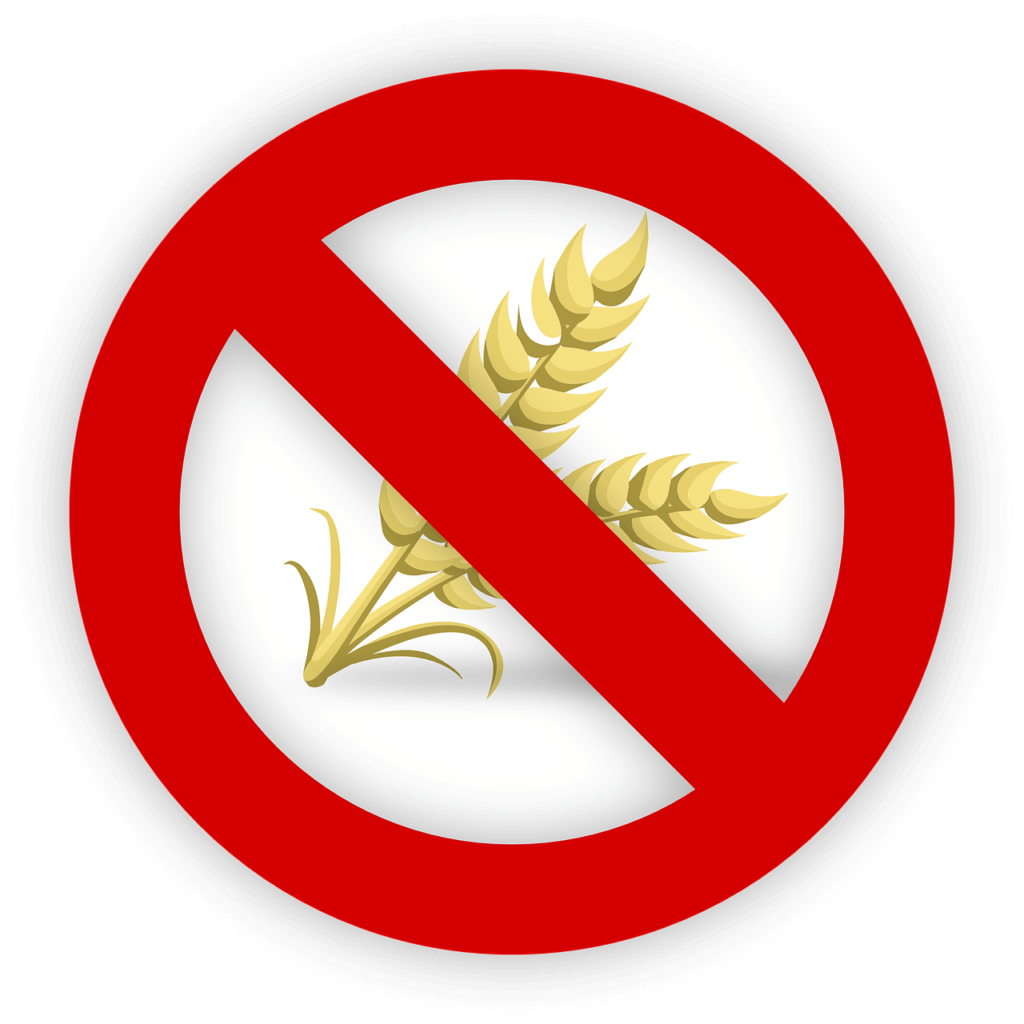Are you a boomer living with celiac disease? If so, it’s crucial to understand the dietary recommendations that can help you effectively manage your condition. Celiac disease can be challenging to navigate, but with the right knowledge and choices, you can still enjoy a healthy and fulfilling lifestyle. In this article, we will explore the dietary recommendations specifically tailored for managing celiac disease in boomers, giving you valuable insights and practical tips to support your wellbeing. Say goodbye to confusion and hello to a better understanding of how to thrive with celiac disease.

Understanding Celiac Disease in Boomers
Definition of Celiac Disease
Celiac disease is an autoimmune disorder in which the ingestion of gluten, a protein found in wheat, barley, and rye, triggers an immune response that damages the small intestine. This can lead to nutrient malabsorption and various health issues. For boomers, individuals born between 1946 and 1964, understanding the intricacies of celiac disease is crucial for managing their health effectively.
Prevalence of Celiac Disease in Boomers
Celiac disease can affect individuals of any age, but its prevalence among boomers is significant. Research suggests that celiac disease is becoming increasingly prevalent in this population, with a higher rate of diagnosed cases compared to other age groups. It is essential for boomers to recognize the symptoms and seek proper diagnosis to lead a healthy and fulfilling life.
Symptoms and Diagnosis of Celiac Disease
Detecting celiac disease can be challenging as its symptoms vary widely among individuals. Common symptoms may include digestive issues, fatigue, anemia, weight loss, and even neurological symptoms. To confirm a diagnosis, doctors often perform blood tests to detect specific antibodies associated with celiac disease, followed by a small intestine biopsy if necessary.
Unique Challenges Faced by Boomers with Celiac Disease
Boomers with celiac disease face unique challenges due to the age-related changes in their body and the impact of the disease on their lifestyle. As they approach retirement and may travel more frequently, adhering to a gluten-free diet can be challenging. Additionally, managing coexisting health conditions such as osteoporosis, diabetes, and thyroid disorders requires careful attention and coordination.
Gluten-Free Diet for Celiac Disease Management
Importance of Gluten-Free Diet
The cornerstone of managing celiac disease is adopting a strict gluten-free diet. Avoiding gluten-containing foods is crucial to prevent intestinal damage and alleviate symptoms. Following a gluten-free diet allows the small intestine to heal, improves nutrient absorption, and helps reduce the risk of complications associated with celiac disease.
Eliminating Gluten-Containing Foods
Eliminating gluten-containing foods can be challenging, as gluten often hides in unexpected places. Boomers with celiac disease must avoid wheat, barley, rye, and their derivatives. This includes common foods such as bread, pasta, and cereals, as well as less obvious sources like soups, sauces, and processed meats. It is essential to read food labels carefully and be aware of potential cross-contamination.
Reading Food Labels and Ingredients
When shopping for gluten-free foods, boomers need to become adept at reading food labels. Look for products labeled “gluten-free” or those certified by reputable gluten-free organizations. Pay attention to ingredients such as modified food starch, malt, and hydrolyzed vegetable protein, as these may contain gluten. Familiarize yourself with safe ingredients and common gluten substitutes to ensure your diet remains gluten-free.
Hidden Sources of Gluten to Avoid
In addition to obvious sources of gluten, boomers with celiac disease must be vigilant about hidden sources of gluten. These can include sauces, gravies, and soy sauces thickened with wheat, as well as many processed foods and condiments. Be cautious when dining out, as cross-contamination with gluten is a potential risk. It is crucial to communicate your dietary needs to restaurant staff and ensure they understand the importance of avoiding gluten.

Recommended Gluten-Free Foods for Boomers with Celiac Disease
Naturally Gluten-Free Whole Grains
While wheat, barley, and rye are off-limits, boomers with celiac disease can still enjoy a variety of wholesome and naturally gluten-free whole grains. These include quinoa, brown rice, amaranth, millet, and buckwheat. These grains can add tastiness and nutritional value to meals, providing essential vitamins, minerals, and fiber.
Fruits and Vegetables
A gluten-free diet should emphasize the inclusion of fresh fruits and vegetables. Not only are they naturally gluten-free, but they are also packed with vitamins, minerals, and antioxidants that support overall health. Incorporating a wide variety of colorful fruits and vegetables can provide boomers with essential nutrients while adding flavor and texture to their meals.
Lean Protein Sources
Protein is a vital component of a balanced diet, and boomers with celiac disease can enjoy a wide range of gluten-free protein sources. Lean meats like chicken, turkey, and fish, as well as legumes, nuts, and seeds, are excellent options. Extra caution should be taken when selecting processed meats, as some may contain gluten as fillers. Opt for whole, unprocessed protein sources whenever possible.
Healthy Fats and Oils
To ensure an adequate intake of healthy fats, boomers with celiac disease can choose from various gluten-free options. Olive oil, avocado oil, coconut oil, and flaxseed oil are all gluten-free and provide essential fatty acids that support heart health and overall well-being. Incorporating these into meal preparation can add flavor and nutritional value to dishes.
Dairy and Dairy Alternatives
Many boomers with celiac disease can tolerate dairy without any issues. However, some individuals may experience lactose intolerance as a result of intestinal damage caused by celiac disease. It is important to choose lactose-free dairy products or consider dairy alternatives such as almond milk, coconut milk, or rice milk. These options can provide the necessary vitamins and minerals found in dairy products.
Safe Gluten-Free Snack Options
Maintaining a gluten-free diet while managing cravings for snacks can be challenging. Thankfully, there are many gluten-free options available to boomers with celiac disease. Snacks like gluten-free rice crackers, popcorn, roasted chickpeas, and fresh fruit can satisfy cravings while adhering to a gluten-free lifestyle. It is important to read labels carefully to ensure that snacks are indeed gluten-free and produced in a gluten-free facility.
Nutritional Considerations for Boomers with Celiac Disease
Meeting Nutrient Needs
Boomrers with celiac disease should pay particular attention to meeting their nutritional needs due to the potential nutrient deficiencies associated with the disease. Ensuring an adequate intake of vitamins, minerals, and other essential nutrients is crucial for maintaining overall health and well-being. Working with a registered dietitian who specializes in celiac disease can help develop a personalized meal plan that meets nutrient requirements.
Importance of Fiber
Maintaining a gluten-free diet can sometimes lead to a lower intake of dietary fiber, which is essential for digestive health. Boomers with celiac disease should prioritize incorporating high-fiber gluten-free foods such as whole grains, legumes, fruits, and vegetables into their diet. Additionally, gluten-free fiber supplements can be considered to ensure adequate fiber intake.
Ensuring Adequate Calcium and Vitamin D Intake
Celiac disease and the resulting intestinal damage can interfere with calcium and vitamin D absorption, leading to an increased risk of osteoporosis and bone fractures. Boomers should focus on calcium-rich foods such as dairy products (if tolerated), fortified plant-based milk, leafy green vegetables, and canned fish with bones. Vitamin D-fortified foods and safe sun exposure can aid in maintaining optimal vitamin D levels.
Maintaining a Healthy Weight
Both weight loss and weight gain can be challenges for boomers with celiac disease. Some individuals may experience unintended weight loss due to nutrient malabsorption, while others may struggle with weight gain due to compensatory overeating. Working with a healthcare professional or registered dietitian can help boomers find a healthy balance and manage their weight effectively through appropriate portion control and food choices.
Hydration and Fluid Intake
Proper hydration is essential for overall health and should not be overlooked by boomers with celiac disease. Adequate fluid intake can support digestion, hydration, and nutrient absorption. Water is the best choice, but herbal teas and gluten-free beverages can also contribute to daily fluid needs. It is important to avoid sugary drinks, as they may worsen certain celiac-related symptoms or contribute to weight gain.

Vitamin and Mineral Supplements for Boomers with Celiac Disease
Potential Nutrient Deficiencies
Celiac disease can lead to various nutrient deficiencies due to malabsorption in the small intestine. Boomers with celiac disease may need to consider supplementation to address specific deficiencies. Common nutrient deficiencies associated with celiac disease include iron, vitamin B12, vitamin D, calcium, and zinc. Regular blood tests under the guidance of healthcare professionals can help identify deficiencies and determine appropriate supplementation.
Recommended Supplements
Supplementation should be done under the guidance of healthcare professionals, as individual needs vary based on nutrient levels and overall health status. For boomers with celiac disease, common supplements may include iron, vitamin B12, and vitamin D, to address potential deficiencies. Calcium and magnesium supplements may also be recommended to support bone health and overall well-being. It is essential to use gluten-free supplements to prevent accidental exposure.
Consultation with a Registered Dietitian
To ensure optimal nutrient intake while managing celiac disease, boomers should consider working with a registered dietitian experienced in celiac disease management. A dietitian can assess nutritional needs, provide guidance on supplementation, and help develop personalized meal plans that meet individual requirements. Their expertise can empower boomers with the knowledge to make informed dietary choices and navigate potential challenges.
Meal Planning and Cooking Tips for Boomers with Celiac Disease
Creating Balanced and Gluten-Free Meals
Planning well-balanced meals is crucial for boomers with celiac disease to ensure they receive all necessary nutrients. Fill a plate with a variety of gluten-free whole grains, lean proteins, and plenty of colorful fruits and vegetables. Experiment with different cooking methods, seasonings, and spices to enhance flavors without relying on gluten-containing ingredients. Online resources and cookbooks dedicated to gluten-free recipes can provide inspiration and guidance.
Exploring New Recipes and Ingredients
Adopting a gluten-free lifestyle can be an opportunity to discover new recipes and ingredients that were previously unfamiliar. Experimenting with gluten-free flours such as almond flour, coconut flour, or chickpea flour can open up a world of baking possibilities. Use gluten-free grains like quinoa or buckwheat as a base for creative salads or grain bowls. Engaging in culinary adventures can make the gluten-free journey enjoyable and exciting.
Meal Prepping and Batch Cooking
Meal prepping and batch cooking can be game-changers for boomers with celiac disease. Preparing meals in advance saves time, reduces stress, and ensures that gluten-free options are readily available. Plan your weekly meals, batch cook staples like grains and proteins, and portion them into containers for convenient grab-and-go options. This strategy also helps prevent relying on processed gluten-free convenience foods, which can be high in sodium and preservatives.
Eating Out and Traveling Tips
Dining out and traveling as a boomer with celiac disease can be daunting. However, with careful planning and communication, it is possible to enjoy safe gluten-free meals outside of home. Research restaurants in advance, review their menus, and call ahead to inquire about gluten-free options. Inform waitstaff about your dietary needs, ask questions about food preparation methods, and stress the importance of avoiding cross-contamination.

Addressing Cross-Contamination Risks
Dangers of Cross-Contamination
Cross-contamination occurs when gluten-free foods come in contact with gluten-containing products, utensils, or surfaces, leading to gluten contamination. Even trace amounts of gluten can trigger symptoms and damage the small intestine in boomers with celiac disease. Awareness of cross-contamination risks is vital to maintaining a strict gluten-free diet and ensuring optimal health outcomes.
Safe Food Handling and Preparation
Boomers with celiac disease must practice safe food handling and preparation to prevent cross-contamination at home. This includes using separate cutting boards, utensils, and cookware for gluten-free foods, as well as thoroughly cleaning all surfaces and tools. Be cautious about sharing condiments and spreads that may have come into contact with gluten-containing products. Establishing clear rules and educating family members about cross-contamination risks is crucial.
Designating Gluten-Free Zones in the Kitchen
Creating designated gluten-free zones in the kitchen can further reduce the risk of cross-contamination. Reserve specific shelves, cabinets, and even refrigerators for gluten-free foods to minimize the chances of accidental exposure. Labeling gluten-free products and using separate storage containers can also provide visual cues and reinforce the importance of maintaining a gluten-free environment.
Educating Family and Friends
Safeguarding against cross-contamination requires the cooperation and understanding of family and friends. Educate your loved ones about celiac disease, its impact on health, and the necessary steps to prevent cross-contamination. Encourage them to consider gluten-free options when hosting meals or preparing food together. Open communication and a supportive environment can make a significant difference in managing celiac disease effectively.
Support and Resources for Boomers with Celiac Disease
Joining Celiac Support Groups
Connecting with others who share similar experiences can be beneficial for boomers with celiac disease. Joining celiac support groups or local community organizations can provide a platform to share knowledge, exchange information about gluten-free products, and find emotional support. Supporting one another through the challenges of celiac disease can help promote overall well-being and a sense of belonging.
Online Resources and Communities
The internet offers a wealth of information and resources for boomers with celiac disease. Online communities, blogs, and websites dedicated to celiac disease management can provide valuable insights, recipes, and support. Stay up-to-date with the latest research and advancements in gluten-free living by following reputable websites and organizations specializing in celiac disease.
Accessing Celiac-Specific Apps
Technology can simplify gluten-free living for boomers with celiac disease. Utilize celiac-specific apps that provide gluten-free restaurant guides, recipe inspirations, and assistance in reading food labels. These apps help streamline the shopping experience, support informed decision-making when dining out, and enable boomers to navigate potential gluten-filled minefields with confidence.
Seeking Professional Guidance
Boomers with celiac disease should not hesitate to seek professional guidance from registered dietitians, physicians, and other healthcare providers. These professionals can provide personalized advice, monitor overall health, and offer support in managing celiac disease and potential coexisting conditions. Regular check-ups and blood tests can track nutrient levels and ensure optimal disease management.

Managing Celiac Disease and Other Health Conditions in Boomers
Celiac Disease and Osteoporosis
Osteoporosis, a condition characterized by weakened bones, is a common concern for boomers with celiac disease. The malabsorption of calcium and vitamin D associated with celiac disease can contribute to the development of osteoporosis. Boomers should focus on maintaining a gluten-free diet, ensuring adequate calcium and vitamin D intake, and incorporating weight-bearing exercises to support bone health.
Celiac Disease and Diabetes
Managing both celiac disease and diabetes requires careful coordination and monitoring. Boomers with celiac disease and diabetes must adopt a gluten-free diet while diligently managing their blood sugar levels. It is important to understand the potential impact of specific gluten-free foods on blood sugar levels. Regular communication between healthcare providers specializing in celiac disease and diabetes can help develop an effective management plan.
Celiac Disease and Thyroid Disorders
Thyroid disorders, such as hypothyroidism or hyperthyroidism, are more prevalent in individuals with celiac disease. Boomers should regularly monitor thyroid function through blood tests and work closely with healthcare professionals to manage both conditions effectively. Ensuring optimal nutrient intake, managing stress levels, and maintaining a gluten-free lifestyle are essential factors in managing both celiac disease and thyroid disorders.
Coexisting Conditions Management Strategies
Boomers with celiac disease may also face other coexisting conditions such as irritable bowel syndrome (IBS), lactose intolerance, or fibromyalgia. Managing multiple conditions simultaneously requires an integrated approach that accounts for individual dietary restrictions, lifestyle modifications, and medication regimens. Collaboration among healthcare professionals specializing in each condition can help develop comprehensive management strategies uniquely tailored to boomers’ needs.
Promoting Emotional Well-Being in Boomers with Celiac Disease
Coping with the Psychological Effects of Celiac Disease
The mental and emotional impact of celiac disease should not be overlooked, particularly among boomers who may experience added stressors related to age and lifestyle changes. Diagnosis and management of celiac disease may elicit feelings of frustration, anxiety, or social isolation. Boomers should seek support from mental health professionals to address these challenges and develop coping strategies that promote emotional well-being.
Building a Supportive Network
A strong support network is essential for boomers with celiac disease. Engaging with family, friends, and celiac disease support groups can help alleviate feelings of isolation and provide a sense of camaraderie. Sharing experiences, seeking advice, and providing emotional support with like-minded individuals can empower boomers to navigate the unique challenges of living gluten-free.
Seeking Professional Help
If the psychological impact of celiac disease becomes overwhelming, boomers should not hesitate to seek professional help. Mental health professionals with experience in chronic illness and autoimmune diseases can provide guidance, coping strategies, and support in managing the emotional aspects of celiac disease. Prioritizing mental well-being is equally important as adhering to a gluten-free diet for overall health.
Integration of Celiac Disease into a Holistic Lifestyle
Embracing celiac disease as a part of a holistic lifestyle can foster a positive mindset and overall well-being. Boomers should focus on adopting stress management techniques, engaging in regular physical activity, embracing self-care practices, and finding joy in activities unrelated to food. By incorporating celiac disease management into a broader holistic approach, boomers can lead fulfilling and balanced lives.
In conclusion, understanding and managing celiac disease is crucial for boomers looking to maintain optimal health and well-being. Adhering to a strict gluten-free diet, seeking professional guidance, and cultivating a supportive network are key elements in successfully managing celiac disease. With the right knowledge, resources, and support, boomers can navigate the challenges posed by celiac disease and live a vibrant and fulfilling life.


